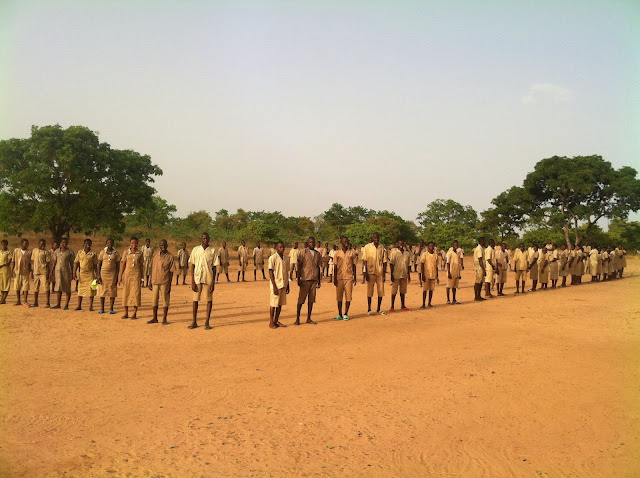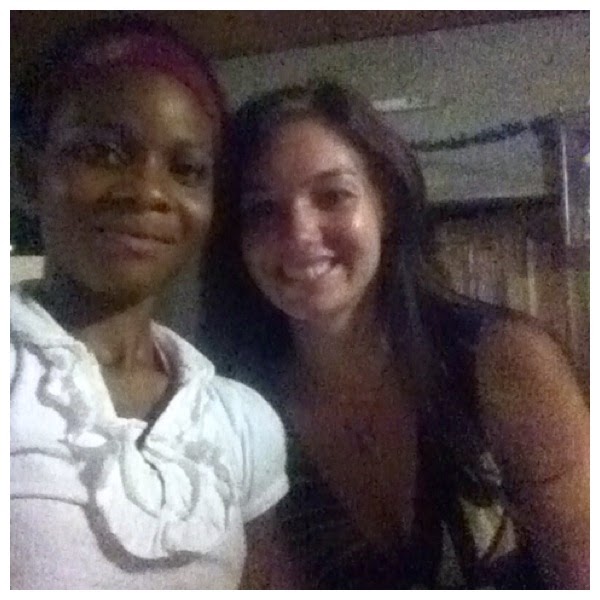The first time I was introduced to
malaria was in my undergraduate Human Diseases textbook. Malaria was wedged
somewhere in between yellow fever and West Nile virus in 3 inches of well-worn
pages. I read the book. I took notes. I made flash cards. I understood.
“Malaria is caused by a parasite
called plasmodium…”
“The vector for malaria is the female Anopheles mosquito…”
“Malaria kills 500,000 people per
year.”
I got it.
…But I didn’t.
I first started to really
understand the seriousness of malaria last year in Senegal when I attended Stomping Out Malaria in Africa, a 2 week “boot camp” for Peace Corps volunteers.
Hours in the conference room skyping with professionals from all over the world
piqued my interest and unleashed my inner geek… but there is still a certain
level of detachment when you are learning about something so large in an
academic setting. I didn’t really start to “get it,” until the 2nd
week when we heard from people there who had emotional ties to the illness…
Until I listened to a man talk about losing his young daughter to the illness
and saw him cry, years later and in front of a crowd, about his loss… Until the
coordinator of the boot camp stood up and told us about how, during his service
in Senegal, he always knew when a
child had died of malaria because of the specific kind of wailing that echoes
off the walls of the health center when a mother loses her child to the disease.
That’s when it really started to hit me how important this is.
My understanding only grew from
there when I myself fell ill with malaria. Nothing has ever, ever knocked me
down like that. I spent days alternating between sweating and chills, barely
able to move, barely able to eat, but very able to feel pain in every single part
of my body and to somewhat clearly think that, “Well, it’s been a good 25
years, I guess this is it.”
But what really, absolutely, 100%
committed me to the eradication of malaria happened when my little brother
Oumarou fell sick.
Oumarou is the spunkiest, funniest,
slyest, weirdest little person. Even though he is only 3 years old, he has an
amazing ability to dance to literally any type of music. He constantly has a
dried layer of boogers between his nose and mouth, no matter how many times you
clean it. He has a tendency to balance strange objects on his head and walk
around the house for hours like that for no particular reason. When you tickle
him, he gets this determined look through his uncontrollable giggling and he
tries his darndest to tickle you back. He is one of my favorite human beings in
the whole world.
I came home one day from the
health center to Oumarou collapsed on my front stoop, passed out on the
concrete and dripping sweat. When I picked him up, it was like holding a chunky
little heating pad. He was absolutely burning up, and his eyes could barely
focus on me. Fortunately, his mom and I were able to get him to the health center
immediately. The fingerpick that they do to test for malaria would send normal
Oumarou into hysterics, but this lifeless little stranger had no reaction to
it. Of course, he tested positive for malaria. I stared at the test, and then
stared at Oumarou. A textbook fact repeated in my head again and again, “Most people who
die from malaria are children under 5 years… Most people who die from malaria
are children under 5 years…” I thought about how terrible my adult body felt
when I had malaria and wondered how on earth his tiny one would make it
through. There are very few times in my life that I’ve ever been that
terrified.
We somehow finally managed to get
Oumarou to take his medication with the help of his favorite blue Powerade
powder. We set an alarm for when his second
dose should be, and settled in for one of the longest nights of my life.
After a few days, Oumarou was okay.
Thank goodness.
I really don’t know what I’d do if
he wasn’t.
That incident is what really, irreversibly
changed my attitude about malaria. Every single kid that comes into the health
center with malaria now reminds me of Oumarou, and it breaks my heart every single
time. Most of the time they are okay. Sometimes, they aren’t. Every time we
lose a child to malaria I feel an intense mixture of sadness, disappointment,
and anger. It’s preventable, treatable, and there is no good reason for it to
be like this. It’s not fair.
But the thing is… not enough of us
care. Did you know that every year the world spends $2 billion on solutions for
male baldness, and only $547 million
on solutions for malaria? This is because malaria isn’t typically an issue for the
wealthier. It's so easy to care about what's right in front of you, and scarily difficult for people to empathize from afar. We vote with our money. What we invest in shapes the world we live in, and right now the wealthier are investing in vanity and not equity. (Despite currently making $200 month, I'm crazy privileged and when I return home I know I'll get a shfancier salary and will desperately try not get sucked into the wrong mindset). If you already have a shfnacier than $200 per month salary, I’ve quite
conveniently added a link to support research on a malaria vaccine:
It’s crazy to think that what used
to be a few pages wedged in a text book has turned into something that
absolutely infuriates, terrifies, and saddens me.
I’m in this fight, and I will
continue fighting until it’s gone. I hope you join me.





















